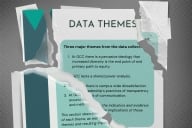You have /5 articles left.
Sign up for a free account or log in.
WASHINGTON -- The top Democrats on the U.S. Senate and House education committees on Tuesday criticized the Obama administration for tweaking the student loan default rates of some colleges, a policy that allowed those institutions to avoid penalties.
The U.S. Department of Education earlier this year adjusted downward the default rates for certain colleges whose high default rates would have otherwise placed them at risk of losing federal aid.
Senator Tom Harkin of Iowa and Representative George Miller of California wrote in a letter to Education Secretary Arne Duncan that they are “concerned these changes could have long term effects on a vital accountability standard and ultimately will allow poorly performing institutions to put more student loan borrowers at risk of taking on debt they cannot repay.”
The two lawmakers, both of whom are retiring from Congress at the end of this year, said that “with few exceptions” colleges that consistently exceed the federal default rate threshold “should not continue to be propped up by taxpayer dollars.”
Default rates are typically calculated by looking at how many borrowers from a given college default on their loans three years after entering repayment. But this year the Education Department said that it had identified colleges that were on the verge of losing federal student aid and then removed from their cohort borrowers who defaulted on one loan but had not defaulted on another.
The department said the policy was needed because some borrowers have different slices of their federal student loan debt managed by different loan servicing companies, a problem known as “split servicing.”
Harkin and Miller appeared to be unpersuaded by that rationale, writing that there was “no evidence” that split servicing caused higher institutional default rates.
In addition, they said they were concerned that the Education Department “has not focused enough on helping struggling borrowers rehabilitate their defaulted loans.”
Denise Horn, a spokeswoman for the department, declined to comment on the substance of the letter Tuesday afternoon.
“We are reviewing the letter we have received from Rep. Miller and Sen. Harkin and look forward to responding,” she said in an email.
Twenty-one colleges faced penalties this year for having default rates that were too high, the largest number of institutions since 1997, according to the department.
Department officials said in September that fewer than 20 colleges benefited from the tweaked default rate calculations. They have declined to identify those institutions but said the list included public, private and for-profit institutions.
The letter from Harkin and Miller also asks the department to respond, within 30 days, to a series of questions about the default rate calculations, split servicing of loans, and support for defaulted borrowers.








